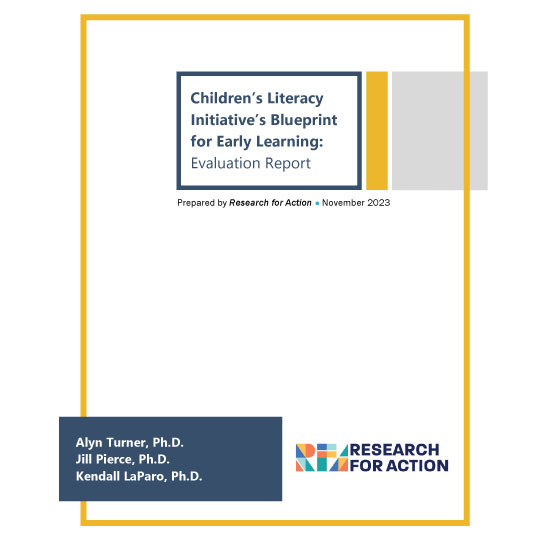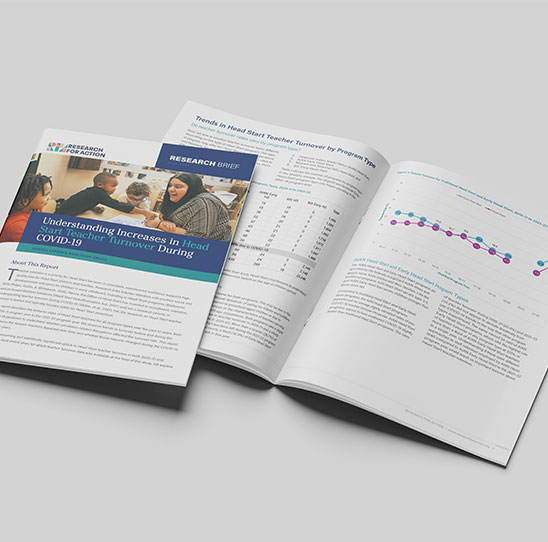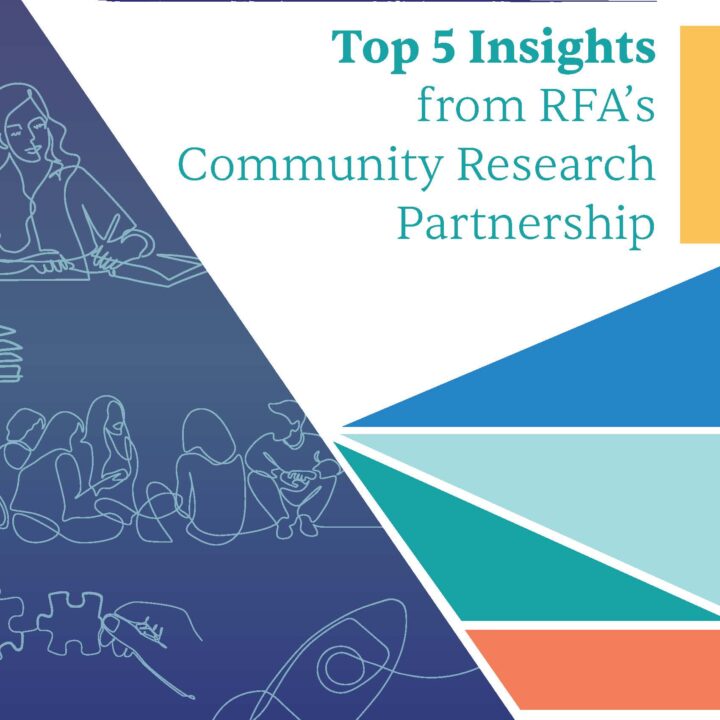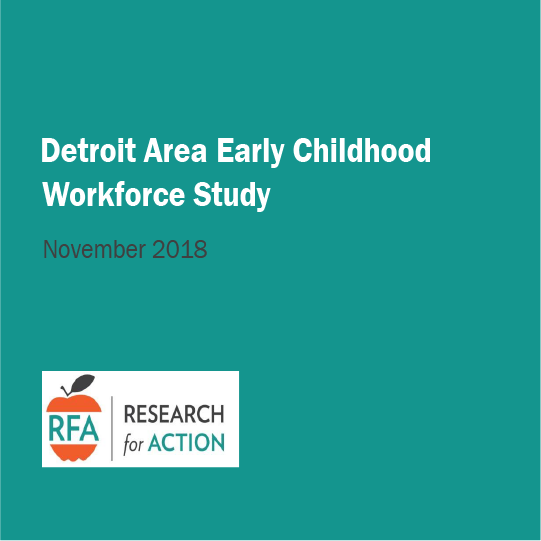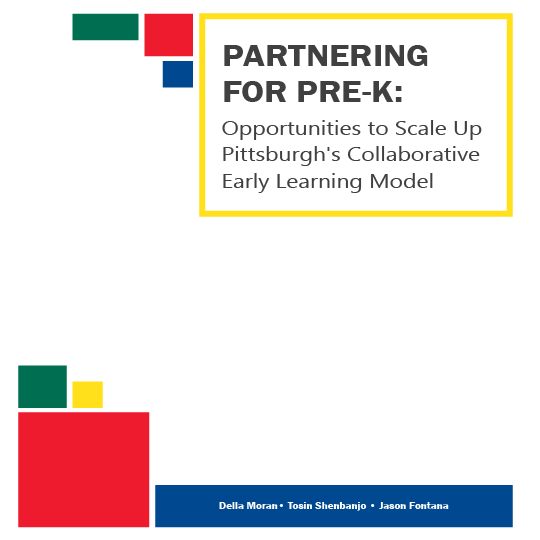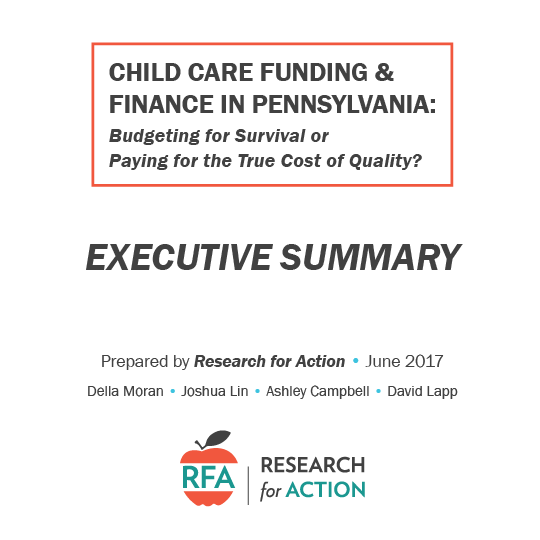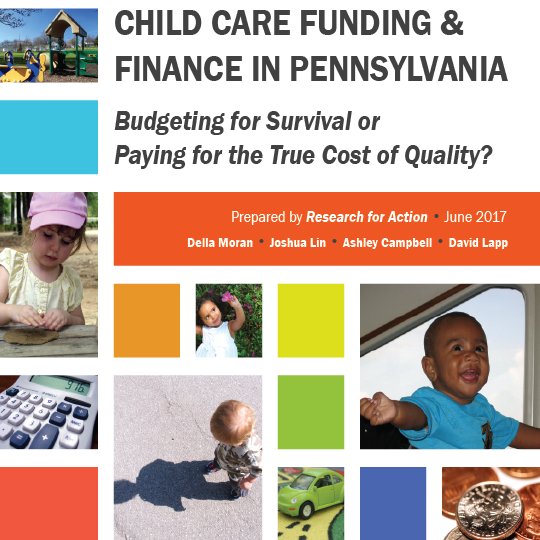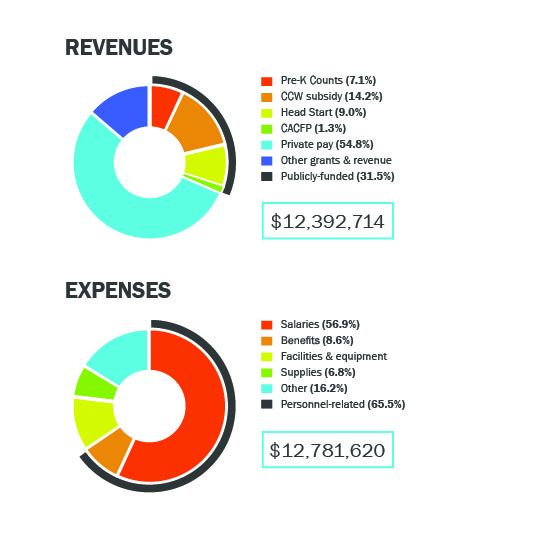In partnership with Children’s Literacy Initiative (CLI), Research for Action conducted a year-long study of the impact and implementation of CLI’s Pre-K Intervention. Thirty-five district-operated and community-based Pre-K programs from Broward County Public Schools and the Early Learning Coalition of Broward County were enrolled and randomly assigned to programs with the intervention and those operating under “business as usual” conditions.
CLI’s interest in an intervention has grown with mounting pressure to better prepare young children for formal schooling, while dealing with the pay and preparation constraints of the early childhood workforce. CLI hypothesized that state and local decision-makers need a comprehensive Pre-K curriculum based in equal parts on the science of child development and the realities of the current early childhood workforce. Claiming that existing options are too complex to be effective in many programs, their view is that the field needs a structured Pre-K curriculum—what they call “scripted with purpose”—that works just as well for an experienced teacher as it does for a novice and that can be implemented with fidelity over time and at a feasible cost.
CLI’s intervention targeted low- and middle-income children enrolled in state-funded universal public Pre-K settings, investing in resources for children and the programs that serve them who live in historically under-resourced communities. CLI recruited programs enrolling 4- and 5-year-old children receiving state funds through the Voluntary PreK program (VPK), a universal state-funded Pre-K funding stream, one of the nation’s largest.
The evaluation was guided by three overarching aims:
- Examine the impact of CLI’s intervention on key skills that prepare children for success as they enter formal schooling in Kindergarten (“Impact Study”);
- Describe thresholds for fidelity of the intervention and document the extent to which CLI met the thresholds in the study (“Implementation Study”) and
- Evaluate the implementation of CLI’s intervention in classrooms serving students with disabilities or development delays (“Case Study”).
RFA’s evaluation found that implementing CLI’s program was challenging, especially when it came to providing enough training for teachers and site leader professional learning. Because of these challenges, the study didn’t find any evidence that CLI’s program made a difference in how well students understood phonological awareness or numeracy (sounds or numbers). Overall, kids in both groups ended the year with skills that were expected for their age.
It’s important to note that the evaluation happened during the COVID-19 pandemic, during which the school year was delayed. Even though communities started to open up again during the study, the effects of the pandemic were still felt.
These findings may inadvertently be interpreted as lack of evidence for CLI’s theory of change, which states that intervention curriculum should outperform existing curricula, and should do so without the need for extensive professional development. An informed perspective, however, is that there is evidence that the intervention curriculum works as well as the existing curriculum, even in its first year of implementation and without significant professional development.
More research is needed to understand the experiences of teachers implementing curricula in public Pre-K settings, particularly designs that measure compare the quality of curriculum implementation and cost effectiveness of generating positive student outcomes.
